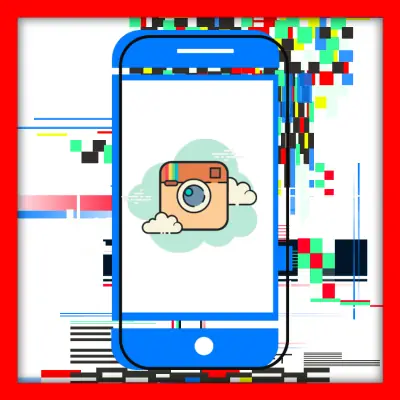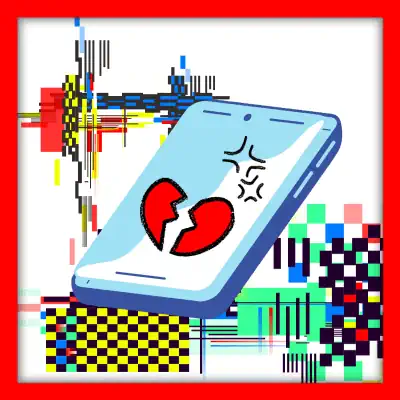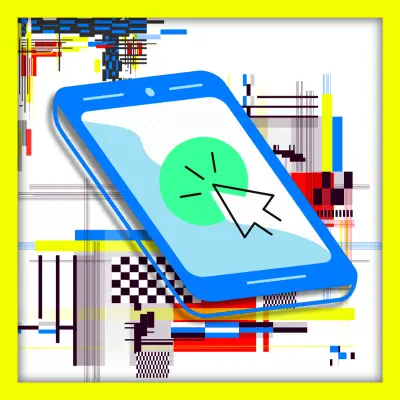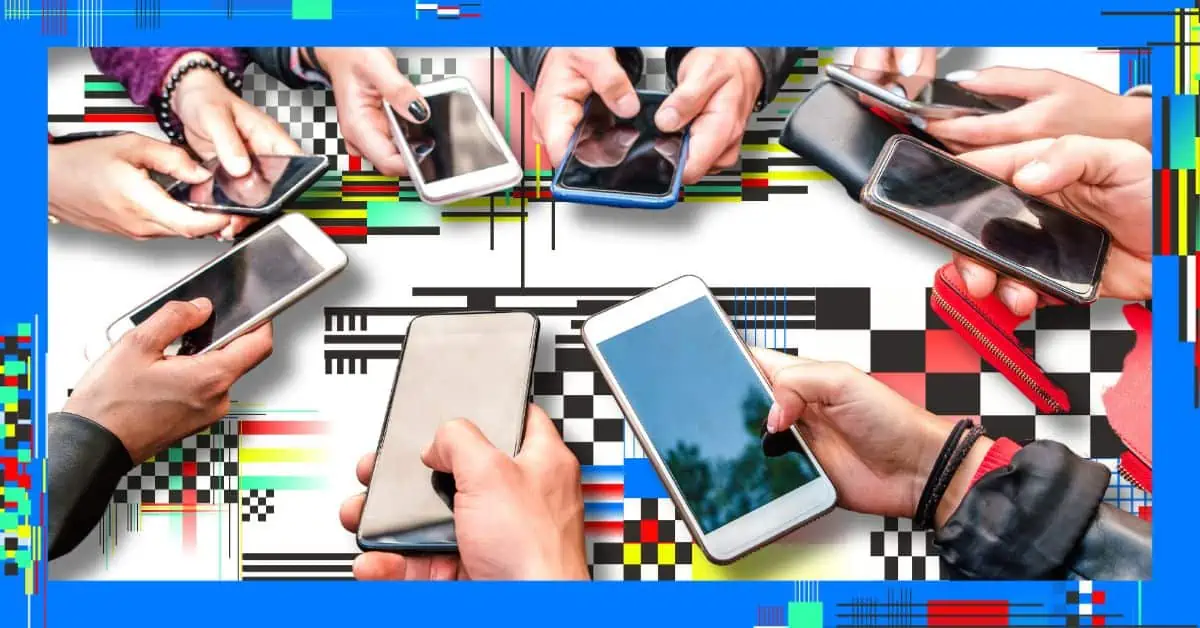Let me start by saying that I have three teenage nieces, and as toddlers, they were adept at using smartphones. After a day with them taking turns playing with my phone, I would have 14 new apps downloaded, from games to social media platforms I’d never heard of–it was unnerving, to say the least. It was like they were adorable little cyborgs who knew how to use technology better than I did.
So it’s safe to say that with this generation of teenagers, the line between real and virtual life is very fuzzy, bordering on becoming non-existent. They pretty much are the definition of “very online.”
The technological boom of this century has introduced us to platforms like Instagram, Snapchat, and TikTok, revamping how we see the world and interact with each other. This blueprint shift has particularly impacted and intoxicated teens, who are now traversing the complexities of relationships, both platonic and romantic, through these digital spectacles. We know that it affects everyone, but how exactly has social media altered teen dating and relationships?

Amplified Digital Intimacy
Traditionally, intimacy has been built through face-to-face interactions, shared experiences, and quality time spent with one another.
However, the emergence of platforms like Snapchat has totally shifted the dynamics. Features like “streaks” and “best friends” can synthetically accelerate feelings of closeness and importance in relationships. While this digital closeness can (and does) create and build connections between teens who might not be geographically close, it also poses certain risks—these online relationships might be based more on virtual interactions than real-life mutual adventures and experiences.

The Perfection Paradox on Instagram
Instagram, an image-centric platform, pushes users, especially teens, to show their ‘best’ selves. This curated representation leads to unrealistic standards in relationships and life in general. The relentless pursuit of perfection can result in teens feeling the pressure to maintain an ‘ideal’ relationship, both online and offline. This can lead to feelings of inadequacy and even impostor syndrome in relationships where reality never comes close to the curated online narrative they’ve been spoon-fed on their feeds.

TikTok: A Platform for Validation and Comparison
TikTok, the incredibly popular short-video-sharing platform, has become a cultural phenomenon among teenagers. On it, users look for validation through likes, comments, and shares. Relationships, too, can become subject to this online validation. “Couple goals” and romantic challenges often go viral, causing some teens to compare their own romantic relationships to these glamorized standards. And these comparisons can breed disappointment and amplify existing or even create new insecurities.

Enhanced Connectivity, Diminished Privacy
While platforms like Snapchat and Instagram make constant connectivity a reality, they also reduce the sanctity of personal space in relationships. Stories, shared locations, and constant updates can blur boundaries, leaving little, if any, room for personal privacy. For teens who are still figuring out their personal boundaries, this lack of privacy can be particularly challenging. One night, my niece told me she couldn’t go back online because she’d already told her BF she was going to sleep—if he saw she was online, it would cause a fight.

The Rise of Digital Jealousy
The accessibility to one’s partner’s digital interactions can often lead to baseless feelings of jealousy. Seeing a significant other’s interactions with friends or strangers online might result in misunderstandings and mistrust, even if those interactions are innocent. If you see your BF or GF has liked a selfie or commented 🔥🔥 on some random stranger’s bikini pic or a hot dude’s gym shot, it’s gonna cause some tension, warranted or not.

Online Relationships: A New Norm
The digital realm offers a path for relationships to start and blossom online. While this does lead to meaningful connections, especially during times like global lockdowns, it also comes with obstacles. The absence of physical presence can sometimes create miscommunications and misunderstood intentions.

The Paradox of Choice
With the world just a click away, teens are exposed to an excess of choices. While this can open lots of doors to meet people from diverse backgrounds, it can also lead to the “paradox of choice.” With so many potential partners available, commitment can become a challenge. The endless swiping culture promoted by some dating apps (ahem, Tinder) can leave teens perpetually looking for someone “better.”
Scientific and Psychological Studies on Social Media’s Impact on Teen Relationships
Recent scientific and psychological studies have delved deeper into understanding the profound impact of social media on teen relationships. The following insights have emerged:

Social Comparison Theory and Instagram
According to the Social Comparison Theory, individuals determine their worth by comparing themselves to others. A study published in the Journal of Social and Clinical Psychology found a strong correlation between the time spent on social media platforms like Instagram and feelings of loneliness and depression. The constant exposure to seemingly ‘perfect’ relationships can exacerbate feelings of inadequacy and dissatisfaction in personal relationships.

Snapchat Dysmorphia
A term coined by dermatologists, “Snapchat dysmorphia,” references the increase in individuals seeking cosmetic procedures to resemble their digitally filtered selfies. This phenomenon, as noted in a report from the JAMA Facial Plastic Surgery, suggests that platforms promoting filters can distort teens’ self-image and perceptions, indirectly affecting their confidence in relationships.

TikTok and Dopamine Release
A study in the National Library of Medicine highlighted the role of intermittent rewards, like likes and comments on TikTok, in dopamine release. The unpredictable nature of these rewards keeps teens hooked, and the dopamine surge can equate digital validation with self-worth. This external validation, when applied to relationships, can lead to a skewed understanding of genuine appreciation and love.

Online Disinhibition Effect
The online world allows for anonymity, leading to the ‘Online Disinhibition Effect,’ where individuals might disclose more or act out more intensely online than in person. This phenomenon, as discussed in CyberPsychology & Behavior, impacts teen relationships as emotions and sentiments may be amplified, leading to potential misinterpretations and conflicts.

Digital Footprints and Trust Issues
Research from the National Library of Medicine found that constant surveillance, like checking a partner’s online activity, can erode trust. The accessibility to digital footprints can cultivate jealousy and mistrust in relationships, even when unwarranted.

FOMO (Fear of Missing Out)
A study in the Journal of Social and Clinical Psychology connected the dots between FOMO and negative social and emotional experiences. Teens, constantly bombarded by updates of friends or partners having a good time, might feel left out, leading to feelings of loneliness, even within relationships.
The insights from scientific and psychological studies underscore the profound influence of social media platforms on teen relationships. While these platforms offer opportunities for connection, they also bring to the forefront challenges that teens and society at large must recognize and navigate.
Takeaways
The digital world, with all its innovations, brings both unique chances and challenges to teen relationships. While platforms like Instagram, Snapchat, and TikTok offer ways to connect, they also introduce new dimensions of complexities—and teenagers’ lives are already pretty chaotic, what with the regular challenges of growing up.
For teenagers negotiating the extremely online age, awareness is so important—recognizing the impact of these platforms and consciously choosing how to engage with them can lead to healthier and happier romantic relationships. Parents, teachers, and counselors need to guide teens on this rocky route, helping them differentiate between digital mirages and real connections.
